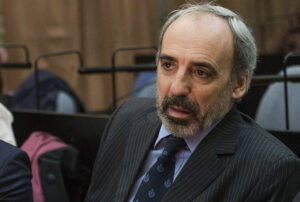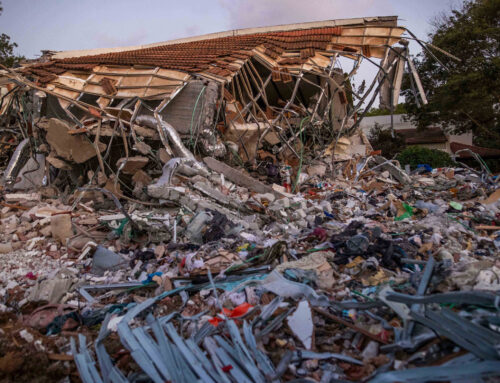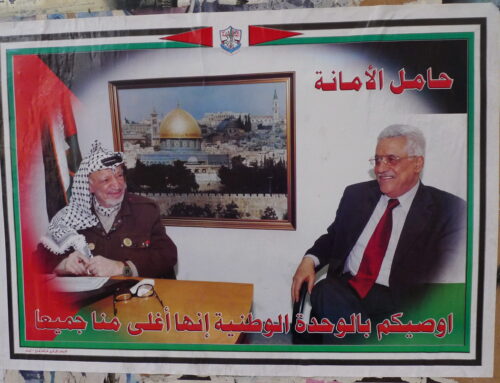Iran behind terror attack that kills 114
An Argentinian court ruled in early April that Iran was behind two deadly terrorist attacks in Buenos Aires in the 1990s. It was about the terror attack in 1992 against the Israeli embassy that killed 29 people and the other in 1994 against a Jewish center that killed 85 and injured 300.

Juan Jose Galeano, the judge who led the investigation into the 1994 terrorist attack, was jailed for six years for concealing and ignoring evidence. Photo: Claudia Conteris/Tax Authority of Argentina
The embassy in Argentina’s capital was destroyed by a bomb while a truck loaded with explosives drove into and blew up the Jewish center.
For 30 years prosecutors have charged Iran with being behind the attacks. Tehran has denied any involvement but the verdict in early April singled out former President Akbar Rafsanjani as ultimately responsible, along with other Iranian officials and Hezbollah members.
For 30 years, the terrorist act has not resulted in a conviction, due to corruption, bribery and the murder of responsible government officials.
The court described Iran as a “terrorist state” and singled out the Iranian-backed terrorist group Hezbollah, according to local media. The terror attacks — the deadliest in Argentina’s history — were declared a “crime against humanity,” according to AFP.
Prosecutor Alberto Nisman was assigned to investigate the bombing in September 2004. In January 2015, one day before he was to report his findings to Argentina’s Congress, he was found dead in his home. A court ruled that it was murder but no trial has been held to convict the culprits.
Obstruction of Justice
Days before, Nisman had told the British daily newspaper The Guardian that he’d requested interrogations with Argentine President Cristina Fernández de Kirchner and Foreign Minister Héctor Timerman for being involved in a gross cover-up that prevented trials of Iranians accused of the 1994 terror attack.
Nisman claimed that the president conducted secret negotiations with Iran through non-diplomatic channels in 2013 and offered to turn a blind eye to Iran’s involvement in exchange for oil that would alleviate Argentina’s energy deficit. The oil was to be exchanged for Argentine grain, said Nisman, whose accusations were based on wiretapping of close allies of President Kirchner, who conspired in a “sophisticated criminal plan” with the cultural attache at Iran’s embassy in Buenos Aires, Mohsen Rabbani.
In exchange for the agreement, Argentina would stop an international arrest warrant issued by Interpol against Rabbani and other senior Iranian officials, the Guardian wrote just days before Nisman was murdered.
In 2013, Argentina signed a controversial agreement with Iran on a joint commission to investigate the 1994 terrorist attack. Nisman claimed the settlement was a direct result of the secret “oil-for-grain” deal.
About a dozen people charged
Argentina’s former president Carlos Menem, who was president at the time of the attacks, was sentenced to more than four years in prison for complicity in the embezzlement of public funds by paying bonuses to government officials.
He was also put on trial for turning a blind eye to the terrorist act, but was acquitted. Menem’s former head of intelligence, Hugo Anzorreguy, was sentenced to four and a half years in prison for preventing the investigation of the terrorist act.
Another dozen or so people were charged with corruption and obstruction of justice. The judge who led the investigation into the attack, Juan Jose Galeano, was jailed for six years for concealing and ignoring evidence. Former prosecutors Eamon Mullen and Jose Barbaccia were each sentenced to two years in prison. In addition, paid informers and other officials received prison terms.
It was US intelligence wiretapping that revealed Iran’s knowledge of the impending attack, as well as Hezbollah’s involvement.
In December 2017, Vice President Cristina Fernández de Kirchner was indicted for treason by judge Claudio Bonadio for an alleged cover-up of Iran’s role through a memorandum of understanding between Argentina and Iran. Kirchner was acquitted.
On December 6, 2022, she was instead sentenced to six years in prison for corruption and a lifetime ban from holding public office. In 2023, Kirchner was again put on trial for the alleged cover-up that Alberto Nisman accused her of.



